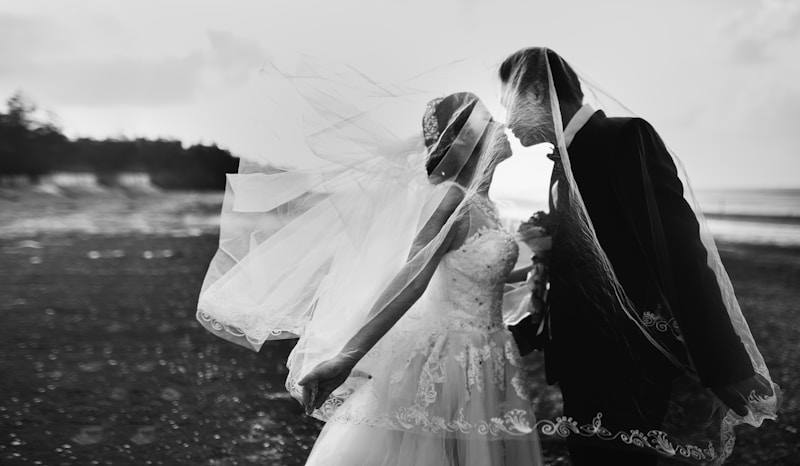Exploring Unique Regional Wedding Practices Around the Globe
Understanding Regional Wedding Practices
Weddings are one of the most significant milestones in an individual's life, celebrated across various cultures with unique traditions and practices. Regional wedding practices reflect the diverse customs and beliefs prevalent in different parts of the world. In this article, we will delve into these fascinating traditions, highlighting some of the most remarkable practices observed in various regions.
The Importance of Regional Wedding Practices
Every culture has its own interpretation of marriage, often dictated by historical, religious, and social influences. Regional wedding practices not only illustrate a wedding’s cultural significance but also showcase the shared values and beliefs of a community. Let's explore a few notable practices that give a glimpse into the rich tapestry of global weddings.
1. African Tribal Weddings
African weddings are a vibrant display of culture, often characterized by elaborate ceremonies and colorful attire. Different tribes have their own unique rituals:
| Tribe | Practice |
| Zulus | The groom must pay lobola, a bride price, to the bride's family, which symbolizes the unification of families. |
| Maasai | Male warriors conduct a jump dance to display their strength and attract potential brides. |
2. Indian Wedding Ceremonies
Indian weddings, particularly among Hindus, are known for their elaborate rituals and lengthy celebrations that can last several days. Key elements include:
- Pre-Wedding Rituals: Events like the Mehndi (henna ceremony) and Sangeet (musical night) set the festive tone.
- Exchange of Garlands: The bride and groom exchange floral garlands, symbolizing their acceptance of one another.
3. Japanese Shinto Weddings
In Japan, traditional Shinto weddings emphasize purity and spirituality. Here are notable aspects:
- Purification Ritual: Both the bride and groom undergo a purification process before the ceremony.
- San-san-kudo: The couple takes three sips of sake from three cups, symbolizing their union.

4. Western Wedding Traditions
Western weddings often involve religious or civil ceremonies, with rites that vary widely depending on cultural backgrounds:
- Engagement Ring: The exchange of rings symbolizes a commitment to marriage.
- White Wedding Dress: Made popular by Queen Victoria, it represents purity and new beginnings.
The Evolution of Regional Wedding Practices
As societies evolve, so do wedding practices. Globalization and intermarriage have introduced new customs and hybrid traditions, blending elements from various cultures. For instance, many Modern weddings now incorporate aspects from different ethnic backgrounds to celebrate both families. This fusion not only enriches the celebrations but also fosters greater understanding between diverse cultures.
Modern Trends Influencing Regional Wedding Practices
Some contemporary trends are impacting regional wedding practices:
- Destination Weddings: Couples are opting for exotic locations, marrying traditions from the host country with their own.
- Sustainable Weddings: The rise in eco-conscious couples has influenced the choice of materials and venues, emphasizing local and sustainable options.
- Technological Innovations: Virtual weddings and live-streamed ceremonies have become increasingly popular, especially post-pandemic.
Challenges Faced by Regional Wedding Practices
Despite the richness of these traditions, there are challenges that regional wedding practices face:
- Commercialization: Some cultural elements are at risk of being overshadowed by consumerism, leading to a loss of authenticity.
- Legal Recognition: In some regions, traditional weddings may lack legal recognition, leading to complications in marital status.
- Social Change: As gender roles and societal norms evolve, some traditional practices may be challenged and redefined.
Summary and Conclusion
Regional wedding practices are a beautiful expression of culture, representing the values, beliefs, and histories of different communities. From vibrant African ceremonies to the elegant simplicity of Japanese Shinto weddings, the rich diversity in wedding traditions offers a glimpse into our shared human experience. While modern trends and globalization continue to shape wedding practices, it’s essential to respect and honor the cultural significance behind each ceremony. As couples plan their nuptials, embracing regional customs can provide a deeper connection to their heritage while also paving the way for new traditions to emerge. As you consider incorporating regional wedding practices into your own celebration, think about how they can honor both the past and the future, creating a memorable experience for everyone involved.
Final Thoughts: When embracing regional wedding practices, take time to research and understand their meanings—the beauty of these traditions lies in their stories. Remember, your wedding is not just a celebration of love; it’s a celebration of culture, heritage, and community.